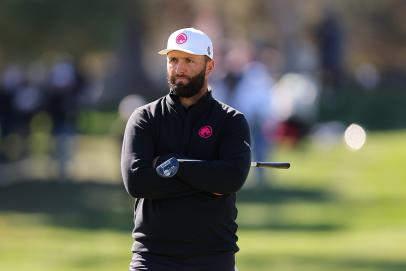The Official World Golf Ranking started, in its nascent form, as an annual passion project from the brilliant and controversial mind of Mark McCormack, who compiled them in his “World of Professional Golf Annual” from 1968 to 1985. There were several key differences in those rankings from the OWGR we know today, but the principle is the same—a comprehensive look at professional golf around the world, with a ranking that values high finishes and recent results over a set period of time. And if anyone thought that McCormack, the founder of IMG, had created these rankings as a way to promote his more famous clients, like Arnold Palmer, Jack Nicklaus, and Gary Player, they were cured of that notion when Nicklaus left IMG and continued to be the world’s no. 1 golfer throughout the ’70s. The rankings slowly gained acceptance, the OWGR was launched in 1986, major organizations and events began to use the list for exemptions, and by 2004 IMG had released the rankings to the seven major governing bodies of the game.
As recently as nine years ago, I wrote a piece extolling the virtues of the OWGR, praising its specificity, thoroughness, and the weights put in place to promote the sport in secondary and tertiary locations without ignoring the reality of American and European supremacy. Its complexity was a virtue; complicated problems like figuring out how to measure professionals across the world against each other are never going to have simple solutions, and the OWGR had threaded the needle, I thought, with something like brilliance.
Today, of course, the OWGR is under fire. A significant chunk of the world’s best players are now playing on LIV Golf, which—because of its format, or politics, or some combination of both, depending on your perspective—receives no world ranking points. Regardless of whether or not that decision is justified, it’s inarguable that this new reality undermines the OWGR. How can you take a world ranking seriously when players like Jon Rahm, Brooks Koepka, Cam Smith, and Joaquin Niemann are plummeting down the list because they don’t have the chance to accumulate points at the same rate as their PGA Tour contemporaries? Even prominent players on the PGA Tour like Matt Fitzpatrick now say they’ve turned to other resources, like Data Golf, for a more clear-eyed assessment on the global pecking order.
Aside from a reunification of the professional game, how can OWGR adapt and survive under these circumstances?
On this week’s Local Knowledge podcast, we look at the institution of the OWGR, from its gestational days as the brainchild of McCormack to its current crisis, and investigate where it goes from here.
More on OWGR  Voices Golf’s World Ranking is more trouble than it’s worth
Voices Golf’s World Ranking is more trouble than it’s worth  LIV Golf LIV Golf gives up bid for World Ranking points as Greg Norman sounds off on board
LIV Golf LIV Golf gives up bid for World Ranking points as Greg Norman sounds off on board  News & Tours The reaction among PGA Tour pros to LIV Golf giving up its push for OWGR points might surprise you
News & Tours The reaction among PGA Tour pros to LIV Golf giving up its push for OWGR points might surprise you
This article was originally published on golfdigest.com



